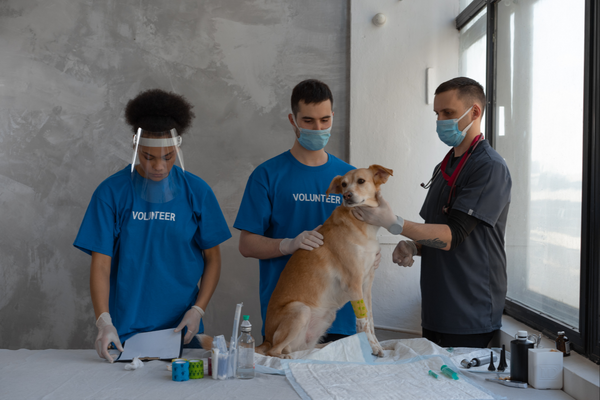Honey, as we all know is a naturally sweet treat that is usually enjoyed by everyone across the world. And it has also proven to be good for your furry friends too. Provided the quantity is limited to what has been allowed by the veterinary doctor.
As far as humans are concerned, honey has been proven to soothe cough and sore throat issues. And it has proven beneficial for dogs as well, provided given in small quantities. However, this should be known to all that honey is not meant for all breeds. There are certain breeds for which honey should be completely avoided.
Is Honey Safe For Dogs?
Honey has proven to give dogs an immense energy boost. When the sugar present in the honey gets broken down, there is a major boost of energy in the dog’s body and that enables him to keep awake for long periods as well as be full of energy.
Many dog owners feed their dogs with honey just before a dog competition so that they are full of energy and can perform to their full potential. Honey is full of antioxidants, minerals as well as vitamins. All three are vital elements for the well-being of your dog.
Apart from these, honey has proven to control symptoms of allergy and skin issues in dogs. If your dog is underweight, honey can help in adding the extra kilos to put your dog back in shape. However, there is a high amount of sugar present in honey; therefore you need to be cautious with the amount of honey you feed your dog.
Benefits of honey for dogs
Honey has a wide variety of benefits for dogs. As honey is full of natural nutrients, it can very well be considered a superfood for canines. It is extremely rich in minerals, antioxidants, and vitamins, and contains a variety of sugars like fructose and glucose, and minerals like iron, sodium, manganese, zinc, phosphate, copper, and magnesium, as well as potassium. The vitamins that are specifically abundant in honey are as follows :
- Vitamin C: this is required for keeping the immune system of your dog, strong. Apart from that, it is also responsible for keeping your dog’s cartilage, teeth and bones, growing as well as repairing the tissues of the body.
- Vitamin B: this is required for overall good health as well as the growth of cells. It combats infection and increases cell metabolism. It is also needed for the good functioning of the brain as well as increased energy levels.
- Vitamin E: This is required for the prevention of aging of cells in the body, and also is an antioxidant.
- Vitamin D: This regulates the absorption of calcium as well as phosphate from the body. Lower amount if vitamin D causes bone issues in dogs.
- Vitamin K: This helps in the healing of wounds, and is vital for the proper clotting of blood.
- Antioxidants: Antioxidants like Phenolic acid and flavonoids are generally required for the protection of the body against oxidative stress. When the dog is expecting, this is an amazing supplement.
Honey helps with dog allergy issues
There are certain dogs that are prone to seasonal allergies, and honey is the perfect home remedy for it. Honey contains minute quantities of flower pollen. Therefore when you give honey to your pooch, a small amount of this flower pollen is introduced to the dog’s system.
Pollen is the prime reason for cause of seasonal allergies in dogs. But the quantity given is so small, that it cannot create any allergies. With time, the body gets used to it and considers it a natural product, and also starts developing antibodies.
Therefore, when the time comes for seasonal change, the body will consider the pollen grains as a natural component and thus his body will not start an immune system reaction.
Honey helps in dealing with skin problems
Your dog might suffer from various skin issues like general wounds, scrapes, scratches, eczema, as well as insect bites. Honey acts as a healer for all these ailments. Honey is mainly effective if it is unpasteurized as it contains antiviral, anti-fungal as well as anti-bacterial properties.
Also, the low moisture content in honey makes it very hard for the bacteria to multiply. The low content of hydrogen peroxide in honey acts as an antiseptic layer that helps in keeping the tissue sanitized while healing the wound.
Apart from healing, honey has also proven to keep the skin healthy. Plus honey helps reduce inflammation and pain as well.
Throat infection and kennel cough
This is something that is known to all of us honey is probably the best medicine if we have a sore throat or any other throat infection. This is the same in the case of our furry friends as well. Honey can work wonders if your dog suffers from kennel cough or any other sort of respiratory issues.
Help in Digestion
Honey can be considered the best medicine if your dog suffers from any digestive issues. A small portion of honey added to your dogs’ diet or fed separately can help with several issues like constipation, indigestion, diarrhea, and many such issues.
It helps to keep the intestines healthy. It acts as a natural antibacterial agent as well. Honey is recommended by many vets for dogs who suffer from minor stomach ulcers.
When not to give honey to dogs
The benefits of honey have been elaborately discussed; however, there are certain situations when you should avoid giving honey to your dog.
- If the dog is diabetic: adding honey to a diabetic dog will increase the blood sugar levels.
- Overweight dogs: giving honey means adding sugar to your dogs’ diet. Sugar turns into calories and that is not a good idea if your dog is already overweight.
- Dogs that are hypersensitive towards bees: there are dogs that are allergic to bees or bee stings. Therefore giving them honey might cause an allergic reaction.

 DogExpress
DogExpress


















 in Chandigarh, India.
in Chandigarh, India. 
